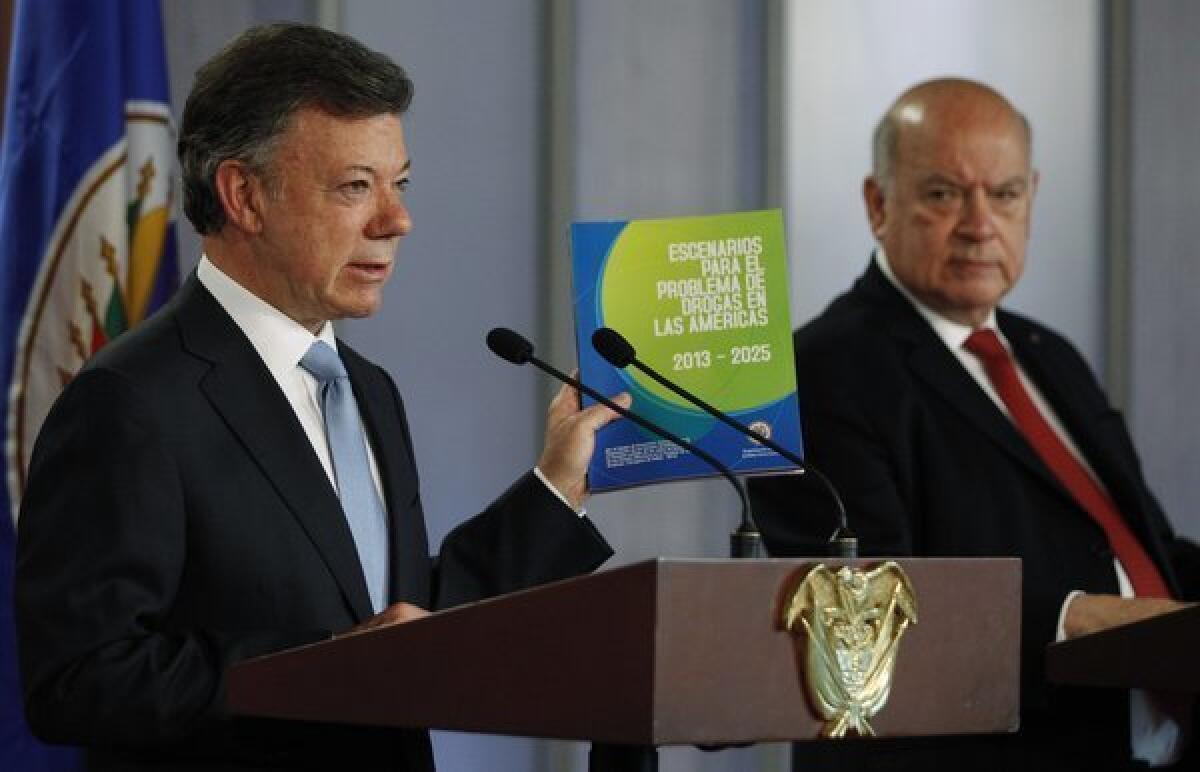OAS study says countries should consider decriminalizing drug use

BOGOTA, Colombia — The Organization of American States said Friday that countries should consider decriminalizing drug use, a shift backed by several Latin American leaders but opposed by the United States.
Decriminalization could be one of many “transitional methods” in a public health strategy that could include “drug courts, substantive reduction in sentences and rehabilitation,” according to a report released by the OAS on the possible liberalization of drug polices.
The report, presented by OAS Secretary-General Jose Miguel Insulza in Bogota, was commissioned during the April 2012 Summit of the Americas in Cartagena, Colombia, in response to many leaders’ complaints that U.S.-driven drug prohibition policies of recent decades had failed to stem the illicit drug business.
Colombian President Juan Manuel Santos said he favored discussion of the decriminalization or legalization of drugs as a way to try to curb illicit drug use and trafficking.
Officials in countries known as drug production and transit locations, such as Colombia and Guatemala, have said they were paying intolerable costs in violence and corruption while consumer nations such as the U.S. and those in Europe were getting off relatively easy as the drugs keep flowing.
“All of us who hold public responsibilities owe it to the millions of women and men, young and old, mothers and fathers, girls and boys who today feel threatened, to find clear answers and effective public policies to confront this scourge,” Insulza said.
The proposal by three former Latin American leaders -- Fernando Henrique Cardoso of Brazil, Ernesto Zedillo of Mexico and Cesar Gaviria of Colombia -- that drugs be decriminalized or legalized has had a ripple effect among Latin American opinion leaders, said Bruce Bagley of the University of Miami, an expert on drug trafficking and policy.
Some specialists said the OAS report could have urged more specific changes to government policies.
Mark Kleiman, a UCLA public policy professor, said policies should be retooled to focus on alleviating the violence and health damage caused by drug use, not on the flow of drugs.
“We’re in a completely unsustainable situation,” Kleiman said. “The strategy is not working.”
John Walsh of the Washington Office on Latin America, a think tank that supports decriminalization of drugs, said the OAS report was valuable in part because “it recognizes that one-size-fits-all responses won’t work for complex problems that affect countries differently.”
ALSO:
Bombings at 2 Pakistan mosques kill 10
Gay rights activists in Mexico City accuse police of abuses
Three U.N. observers released unharmed between Syria and Israel
More to Read
Start your day right
Sign up for Essential California for news, features and recommendations from the L.A. Times and beyond in your inbox six days a week.
You may occasionally receive promotional content from the Los Angeles Times.






